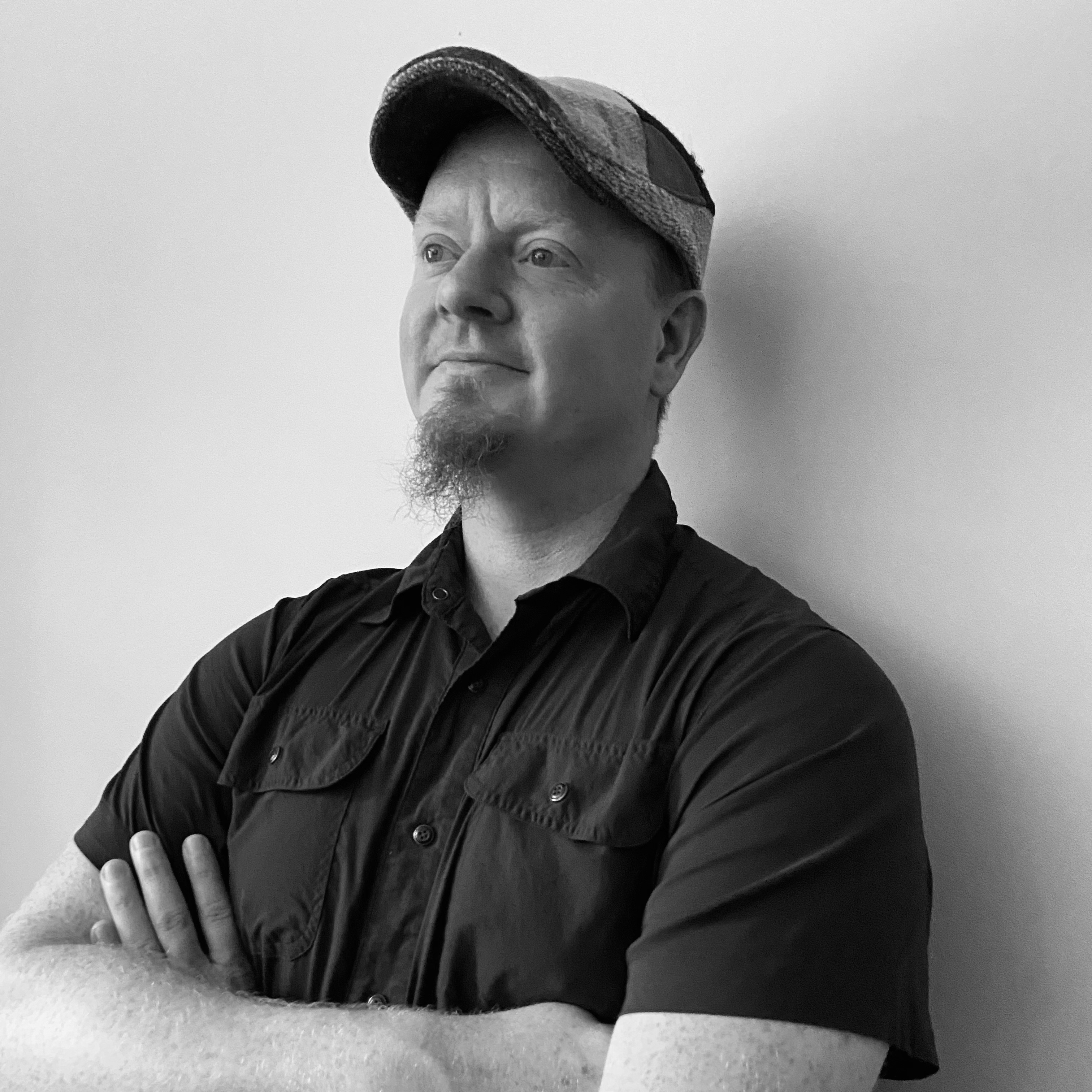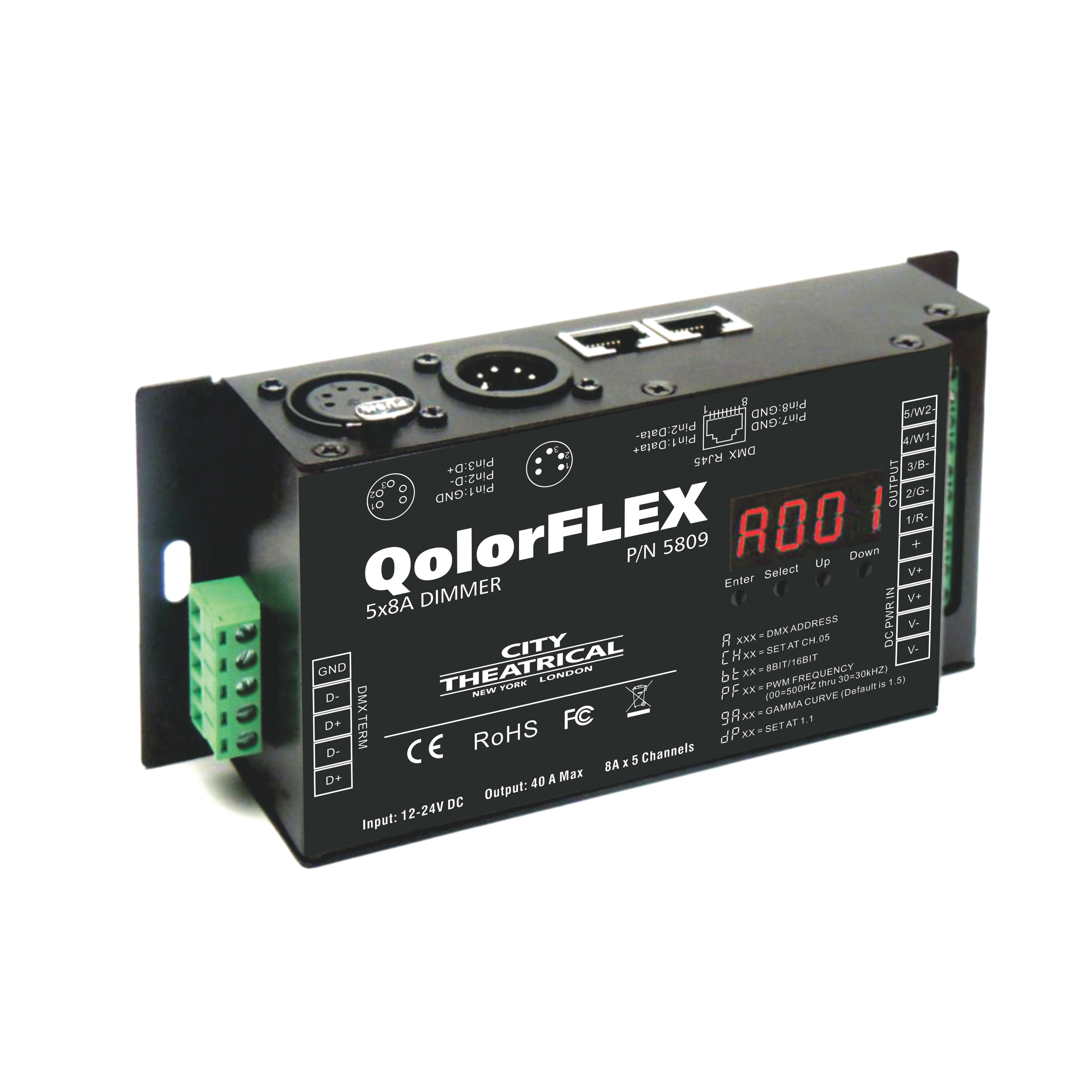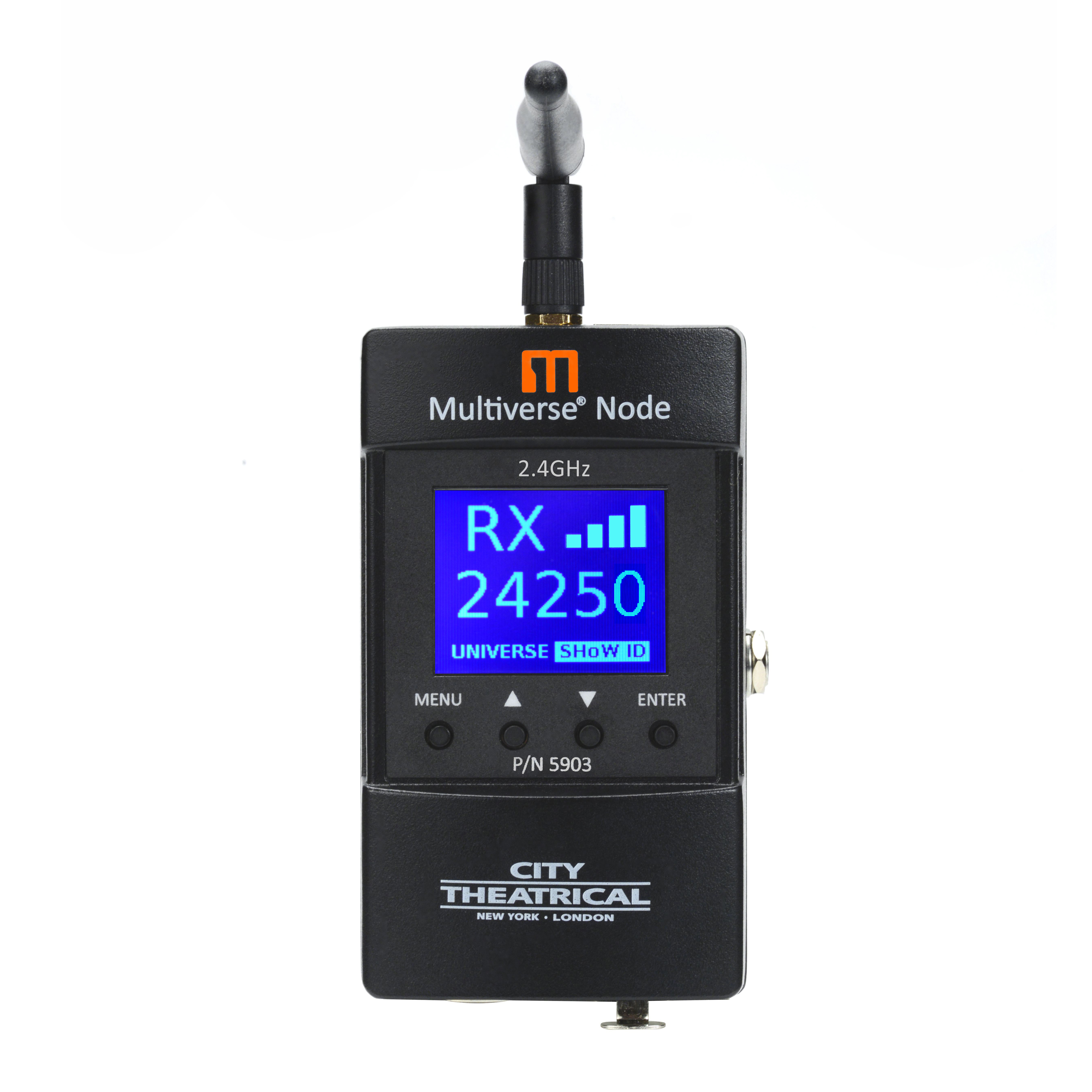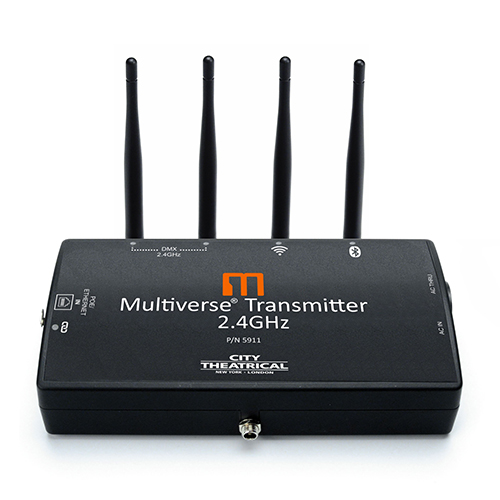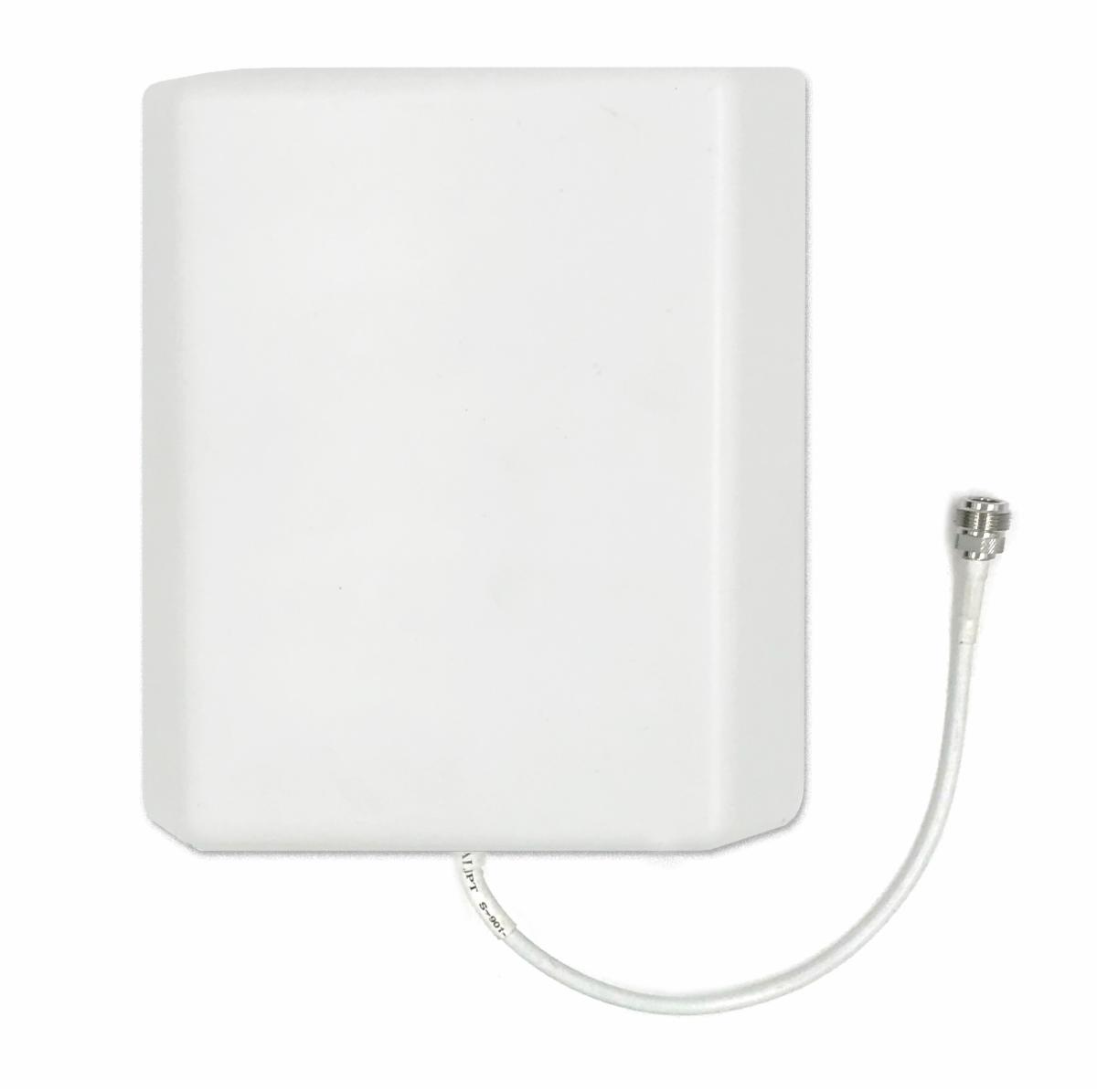Madonna Celebration Tour
Learn how Multiverse wireless DMX/RDX and QolorFLEX Dimming Control were used in the staging of Madonna's Celebration Tour in this City Theatrical case study.
City Theatrical's Multiverse® Wireless DMX/RDM at Madonna's Celebration Tour
PRG worked with scenic designer Ric Lipson
and lighting designer Rob Sinclair to create
scenic doorway frames with pixel-controlled
LED lights and illuminated crosses for
Madonna’s Celebration Tour. PRG’s scenic
elements also included a frame that lifted the
queen of pop above the stage. PRG Scenic Electrics
Designer Jay Woods
incorporated City Theatrical’s Multiverse Wireless
DMX/RDM into those scenic elements.
Discover more about their experience with the Multiverse wireless DMX/RDM products, including Multiverse Nodes, Multiverse Transmitters and QolorFLEX 5x8A Dimmers by City Theatrical in this wireless DMX case study Q&A with Jay Woods on Madonna's Celebration Tour below.
CASE STUDY:
Multiverse® Wireless DMX/RDM at Madonna's Celebration Tour
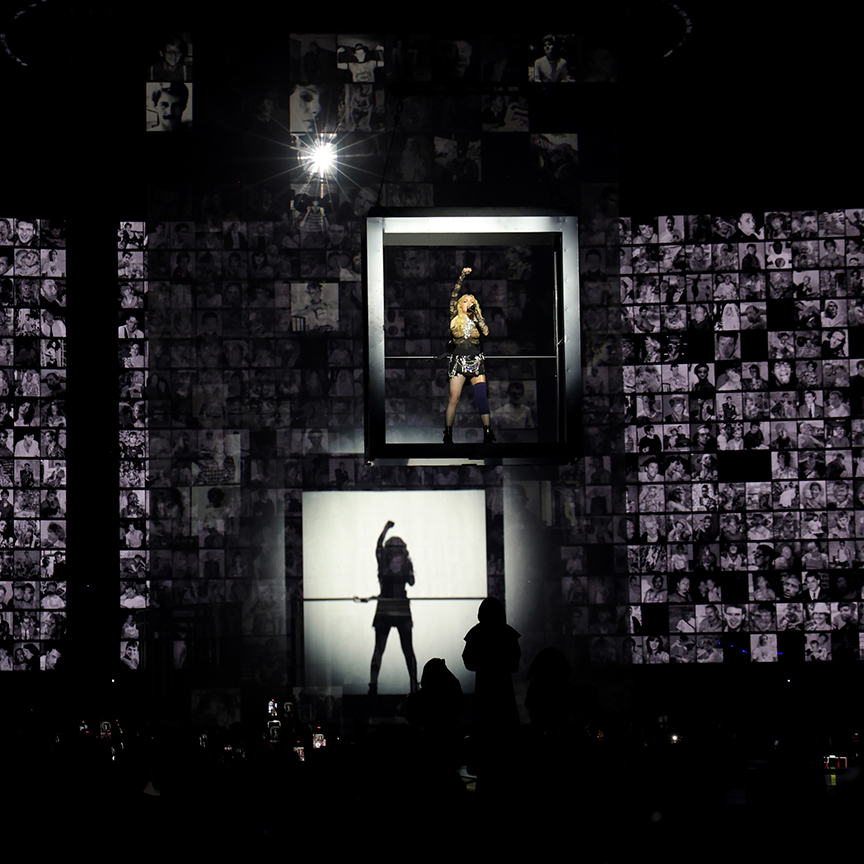
Madonna's Celebration Tour. Photo Courtesy of PRG
Learn more about the tour
THE CASE STUDY Q&A WITH PRG'S SCENIC ELECTRICS DESIGNER JAY WOODS:
City Theatrical (CT): How was Multiverse wireless DMX/RDM on the Madonna tour?
Jay Woods (JW): I didn’t get any feedback or questions about Multiverse once it was sent out, so no news is good news. Typically, once things are up and running, I rarely hear back unless there are issues. So Multiverse has been doing great on tour!
CT: What were you looking for Multiverse wireless DMX/RDM to help you achieve?
JW: Multiverse was used to send lighting control data to various scenic pieces. We had several units with multiple universes of LED and pixel tape, and we needed a reliable system that could handle the data traffic. Each of the scenic units incorporated motion as well. In one case, the receivers were incorporated into a stage lift and the only location for a Multiverse Transmitter was high above in the truss rig. In another, all of the lighting was installed onto a flying frame, which took the performer out over the arena, flying through three-dimensional space. We needed the lighting data to track with the motion of the frame, and since that unit had both LED tape and pixel effects, it was imperative that the data stream remain connected reliably. It did so with Multiverse’s wireless DMX connection.
CT: Why Multiverse?
JW: Multiverse wireless DMX/RDM provides a lot of versatility, and that helps to offset the unknown and changing factors of a worldwide concert tour. Each city has a different radio interference profile to consider, and Multiverse can adapt to that. There also can be slight changes in the rig setup across locations that modify the signal geometry. In my experience, Multiverse can be relied upon to adapt and overcome those challenges. Reliability is also a major factor. Multiverse components are built to endure the touring environment and they are supported by City Theatrical.
Product support is also a huge plus for me. I often find myself involved with projects that push the limits of the technology or are new applications for it. Those projects are always the most exciting to work on. It gives me confidence to know that if I run into any issues, I can reach out to the team at City Theatrical and speak directly with an engineer or a sales professional to find solutions to any issues we may encounter. Everyone on the team is always so great to work with; a lot of my favorite “phone-a-friends” work for City Theatrical.
“I have used Multiverse in a lot of tricky situations. It just seems to work. I have seen it keep working right through rain and snowstorms, thousands of cell phone holding audience members, lots of trees, and all sorts of other things that are usually terrible for radio signals.”
- Jay Woods, PRG's Scenic Electrics Designer, Madonna Celebration Tour
CT: Were there any memorable moments in wireless DMX?
JW: Over the years, I have used Multiverse in a lot of tricky situations. It’s always amazing to me how, in the end, Multiverse just seems to work. I have seen it keep working right through rain and snowstorms, among thousands of cell phone holding audience members, or lots of trees, and all sorts of other things that are usually terrible for radio signals. I have even used Multiverse to make coffee, but that setup is a trade secret.
CT: Any wireless DMX learnings from this project?
JW: Do your homework. Multiverse is great, but like anything that needs to be made reliable, you have to study the application and the tools you want to use and then prove that it will work as desired before you need it to. Preparation is key. So is knowing how your equipment aligns with your goals.
Keep learning. I always keep my eyes open for new ways to expand the work I do. I never know when something I see might come in handy.
Give good feedback. I keep in touch with several of the sales reps and engineers at City Theatrical, and I make it a point to constantly discuss with them what I like and what I think could be better. They often reach out to me to follow up or ask my opinion on products or applications, and that creates a positive feedback loop that helps make us all better at what we love to do.
CT: Is there anyone you would like to shout out for their work on this project?
JW: I would like to share my appreciation for the Set LX and Management team at PRG and acknowledge all the hard work they did on this project.
CITY THEATRICAL PRODUCTS USED:
